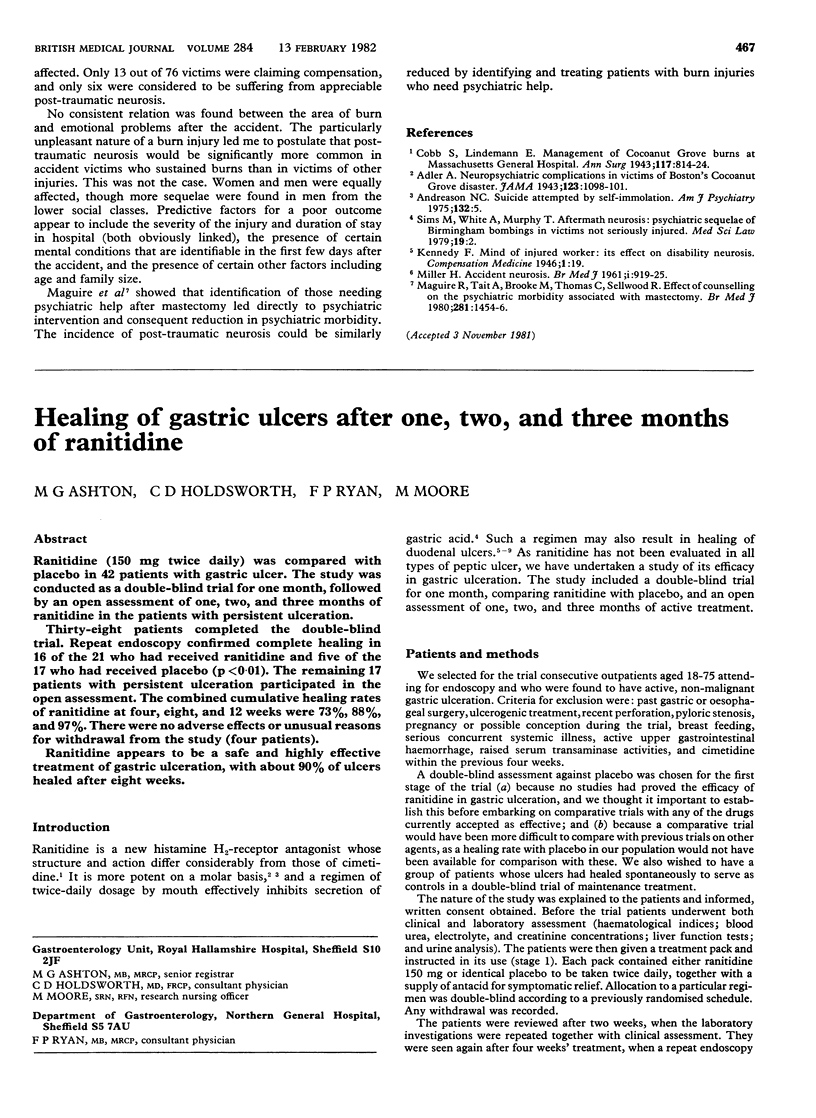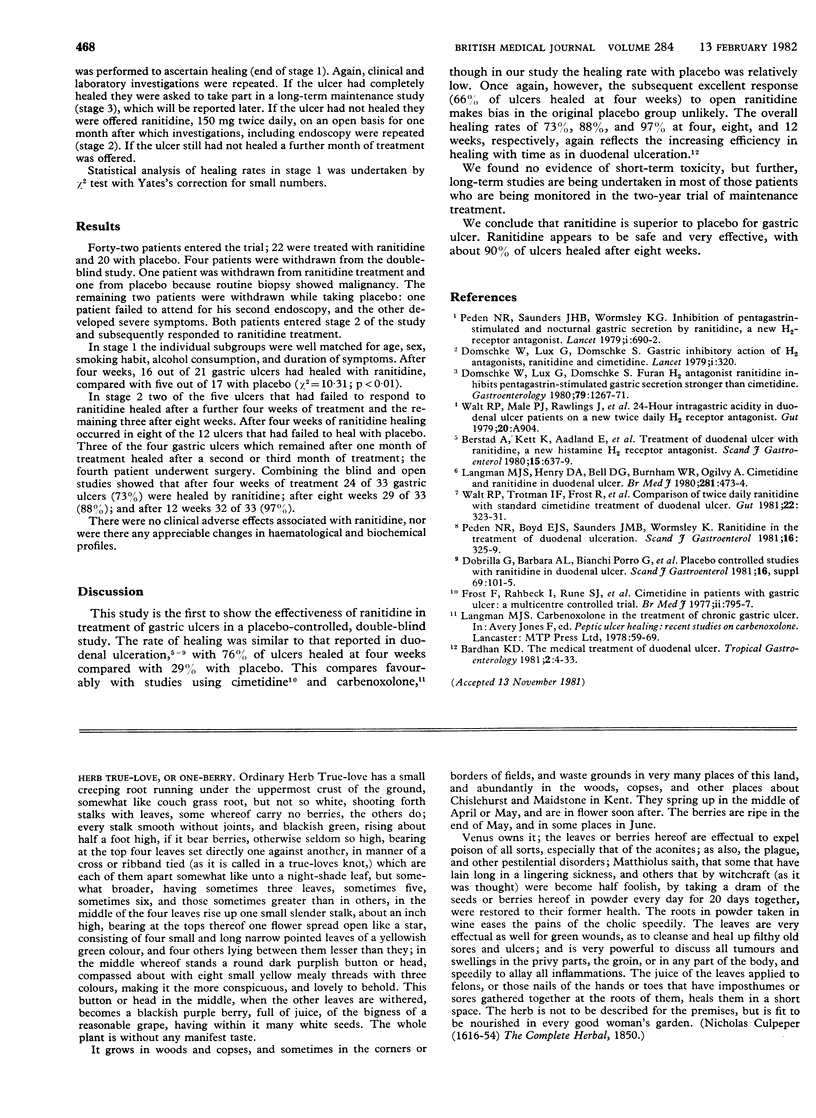Abstract
Ranitidine (150 mg twice daily) was compared with placebo in 42 patients with gastric ulcer. The study was conducted as a double-blind trial for one month, followed by an open assessment of one, two, and three months of ranitidine in the patients with persistent ulceration. Thirty-eight patients completed the double-blind trial. Repeat endoscopy confirmed complete healing in 16 of the 21 who had received ranitidine and five of the 17 who had received placebo (p less than 0.01). The remaining 17 patients with persistent ulceration participated in the open assessment. The combined cumulative healing rates of ranitidine at four, eight, and 12 weeks were 73%, 88%, and 97%. There were no adverse effects or unusual reasons for withdrawal from the study (four patients). Ranitidine appears to be a safe and highly effective treatment of gastric ulceration, with about 90% of ulcers healed after eight weeks.
Full text
PDF

Selected References
These references are in PubMed. This may not be the complete list of references from this article.
- Berstad A., Kett K., Aadland E., Carlsen E., Frislid K., Saxhaug K., Kruse-Jensen A. Treatment of duodenal ulcer with ranitidine, a new histamine H2-receptor antagonist. Scand J Gastroenterol. 1980;15(5):637–639. doi: 10.3109/00365528009182228. [DOI] [PubMed] [Google Scholar]
- Dobrilla G., Barbara L., Bianchi Porro G., Felder M., Mazzacca G., Miglioli L., Pera A., Petrillo M., Sabbatini F., Verme G. Placebo controlled studies with ranitidine in duodenal ulcer. Scand J Gastroenterol Suppl. 1981 Jun;69:101–107. [PubMed] [Google Scholar]
- Domschke W., Lux G., Domschke S. Furan H2-antagonist ranitidine inhibits pentagastrin-stimulated gastric secretion stronger than cimetidine. Gastroenterology. 1980 Dec;79(6):1267–1271. [PubMed] [Google Scholar]
- Domschke W., Lux G., Domschke S. Gastric inhibitory action of H2-antagonists ranitidine and cimetidine. Lancet. 1979 Feb 10;1(8111):320–320. doi: 10.1016/s0140-6736(79)90728-1. [DOI] [PubMed] [Google Scholar]
- Frost F., Rahbek I., Rune S. J., Jensen K. B., Gudmand-Hoyer E., Krag E., Rask-Madsen J., Wulff H. R., Garbol J., Jensen K. G. Cimetidine in patients with gastric ulcer: a multicentre controlled trial. Br Med J. 1977 Sep 24;2(6090):795–797. doi: 10.1136/bmj.2.6090.795. [DOI] [PMC free article] [PubMed] [Google Scholar]
- Langman M. J., Henry D. A., Bell G. B., Burnham W. R., Ogilvy A. Cimetidine and ranitidine in duodenal ulcer. Br Med J. 1980 Aug 16;281(6238):473–474. doi: 10.1136/bmj.281.6238.473. [DOI] [PMC free article] [PubMed] [Google Scholar]
- MacDonald A. J., Peden N. R., Hayton R., Mallinson C. N., Roberts D., Wormsley K. G. Symptom relief and the placebo effect in the trial of an anti-peptic drug. Gut. 1981 Apr;22(4):323–326. doi: 10.1136/gut.22.4.323. [DOI] [PMC free article] [PubMed] [Google Scholar]
- Peden N. R., Boyd E. J., Saunders J. H., Wormsley K. G. Ranitidine in the treatment of duodenal ulceration. Scand J Gastroenterol. 1981 Apr;16(3):325–329. doi: 10.3109/00365528109181976. [DOI] [PubMed] [Google Scholar]
- Peden N. R., Saunders J. H., Wormsley K. G. Inhibition of pentagastrin-stimulated and nocturnal gastric secretion by ranitidine. A new H2-receptor antagonist. Lancet. 1979 Mar 31;1(8118):690–692. doi: 10.1016/s0140-6736(79)91146-2. [DOI] [PubMed] [Google Scholar]


